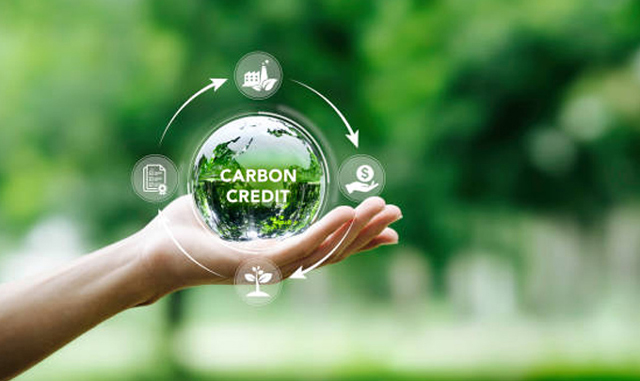News Flash
News Flash

PARIS, April 5, 2024 (BSS/AFP) - Three of the world's largest carbon credit programs are eligible for a new 'integrity' label that is supposed to ensure that what they sell actually helps avoid or cut planet-warming CO2 emissions, a standards body said Friday.
Credits are bought by companies or individuals seeking to offset their carbon footprint, but revelations some do little or nothing for the environment has sent the market into turmoil.
In an effort to shore up credibility, a new voluntary label was unveiled last year to try to reassure buyers that certain 'high-integrity' credits delivered what they promised.
Companies selling credits were invited to apply to the Integrity Council for the Voluntary Carbon Market (ICVCM), a governance body for the sector that sets these nonbinding rules.
On Friday, it announced that ACR, CAR and Gold Standard -- three of the four largest credit sellers in the world, with a combined market share of 30 percent -- were the first deemed eligible.
Annette Nazareth, chair of the ICVCM, said it was an "exciting moment" that signalled market interest in higher standards of transparency.
"We're optimistic that an overwhelming part of the market will move" to these labels, she told AFP.
Offsets are traded on a so-called voluntary market because it is not regulated by government or a set of standard rules, and a number of other industry labels already exist.
Nazareth said companies representing 98 percent of this market -- essentially ACR, CAR, Gold Standard and the behemoth Verra, which is still being assessed -- had signed up to its label.
- Doubts and controversy -
Credits are generated through projects that reduce or avoid emissions, such as by planting trees or protecting forests.
But critics say many offsets are worthless at best and harmful at worst, allowing major polluters to claim carbon neutrality without reducing the actual their greenhouse gas output.
A single credit represents one tonne of CO2 removed from the atmosphere or prevented from entering it, and projects in theory need to prove how this was achieved.
This has been an area of huge controversy, with some projects found to have greatly overstated the benefit for the climate.
Nazareth said eligible programs could not use the 'integrity' label until a separate ongoing assessment of their carbon credit methodologies was concluded.
Gilles Dufrasne from Carbon Market Watch, who also sits on the independent expert panel that advises ICVCM, said this process would hopefully weed out the good from the bad.
"If we end up in a situation where ICVCM labels 90 percent of the market as high quality then no, this is going to do nothing, because people know that's not true," Dufrasne told AFP.
"If it really cuts a big chunk of the market and gives good reassurance that the credits they are labelling are high quality then it can be a contributing factor" to restoring trust in the sector.